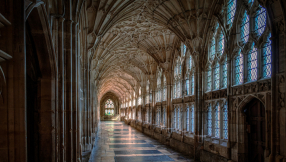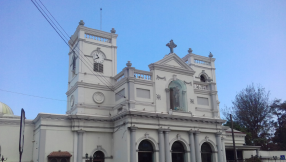Up to 20,000 Indian Christians face Christmas as refugees two years after a wave of attacks by militant Hindus in the state of Orissa.
Release International warns many displaced by the worst sectarian rioting in India are still unable to return to their villages for fear of death or forcible conversion to Hinduism.
Many who were witnesses to the riots face threats and intimidation by mobs gathered outside courtrooms. Up to 75 people were killed in the ultra-nationalist riots and 50,000 were driven from their homes, yet two years on, hundreds of cases have yet to be dealt with effectively by the judicial system.
Release International, which is part of the Religious Liberty Partnership (RLP), is calling for the Indian government to do all in its power to bring about justice, and for churches around the world to remember at Christmas the Indian Christians who were victims of the riots.
Release International, which serves persecuted Christians worldwide, said: "Please pray for Christians in India this Christmas, especially those in Orissa who still face the high risk of attack and marginalisation from the Hindu fundamentalists."
Release partner, the All India Christian Council, estimate up to 20,000 Christians who were driven from their villages by Hindu ultra-nationalists have been unable to return home.
"Many village leaders are only allowing people to settle if they convert to Hinduism," said Release partner John Dayal, Secretary General of the All India Christian Council.
"We know many are living as refugees in various cities in Orissa and other parts of India," Mr Dayal told Release.
"Many are struggling to find work. There have been reports of human trafficking of Orissa women."
According to a statement by the Religious Liberty Partnership, a "large proportion" of victims have been unable to return to their villages for fear of death or forcible conversion to Hinduism.
"Victims are continuing to receive threats from the perpetrators of violence. Witnesses are facing intimidation by mobs outside courtrooms, and there is widespread fear. Hundreds of cases have not been registered properly by the police, and therefore will not be subject to investigations or prosecutions," it says.
Mr Dayal described the lack of legal progress as "a monstrous miscarriage of justice".
"It has been impossible for victims to be heard. Police investigations have failed miserably, and the courts are taking no steps to protect witnesses or ensure their safety."
Witnesses and victims are so terrified of reprisals that AICC lawyers have had to resort to meeting them in secret in the forests and the few villages where they have been able to return home.
But many who were persuaded to testify were so intimidated by hostile mobs surrounding the courts that they have backed down or changed their testimony. "Clearly the guilty have benefited," said Mr Dayal.
Many Christian victims and witnesses have been threatened. According to the AICC the wife of a pastor who was murdered in the riots was menaced by friends of the accused outside the court. She was so frightened that she eventually refused to testify or pursue the case against her husband's killers.
Displacement has also taken its toll on Orissa's children. Many are fearful of attending school, and others have failed their exams because of the severe disruption caused by the riots and displacement.
Rioting broke out in the Kandhamal district of Orissa in December 2007, when Dalit Christians were targeted and their property destroyed. In August 2008, violence erupted again after Maoist guerillas killed a prominent right-wing Hindu leader, Swami Lakshmananda Saraswati, and four of his followers.
Saraswati was a bitter opponent of Christian missionary work among the Dalits – the so-called untouchables, who are excluded from the Hindu caste system. Even though Maoists claimed responsibility for his murder, Hindu nationalists took revenge against the Christian community.
The militants uphold the Hindu nationalist ideology Hindutva, which at its most extreme insists that to be Indian is to be Hindu.
They have been working to introduce anti-conversion laws in seven states, designed to prevent the spread of Christianity and other faiths. The nationalist BJP party is also pressing for a constitutional change that would ban so-called forcible conversions. At the same time, Hindu militants have been forcing many Christian converts among the Dalits to return to Hinduism – sometimes at knifepoint.
"If they are not contained and the guilty punished, we see dark clouds for religious harmony in India," Mr Dayal warned. The AICC has set up a reconciliation centre in Kandhamal, where the rioting broke out.
But despite the lack of justice and the hardship and poverty suffered by many refugees, a recent visit by Release International to the area found a willingness to forgive, stand firm and to seek reconciliation.
"Those who can, have chosen to remain living in the area, hoping for restoration once again. They are building strong Indian communities, of all faith and none," Release said.
The Religious Liberty Partnership is calling on Christians worldwide to pray for India's Christians this Christmas – especially the thousands displaced in Orissa, who have been unable to return to their homes.
Through its international network of missions, Release International serves persecuted Christians in 30 countries around the world by supporting pastors and Christian prisoners, and their families; supplying Christian literature and Bibles; and working for justice.













